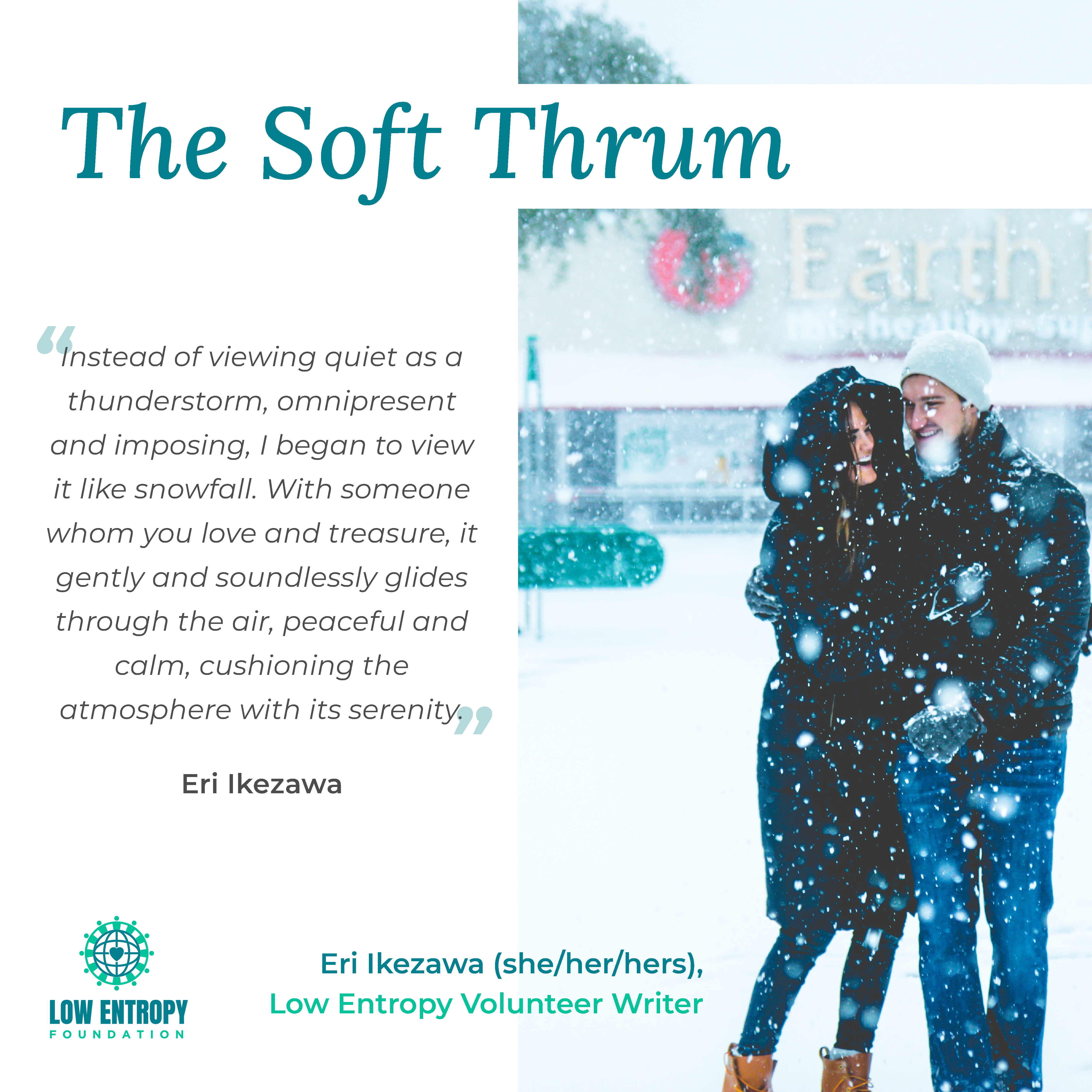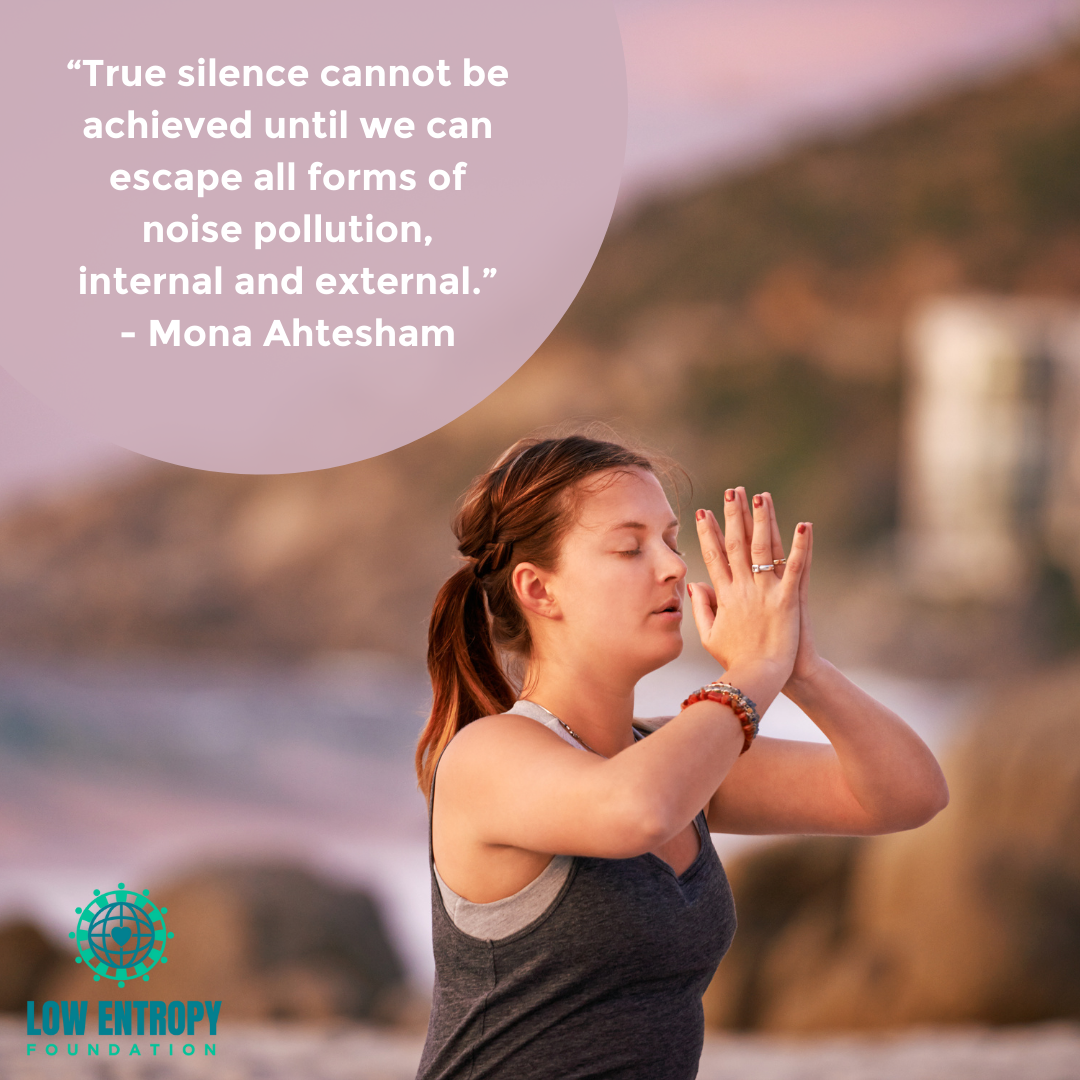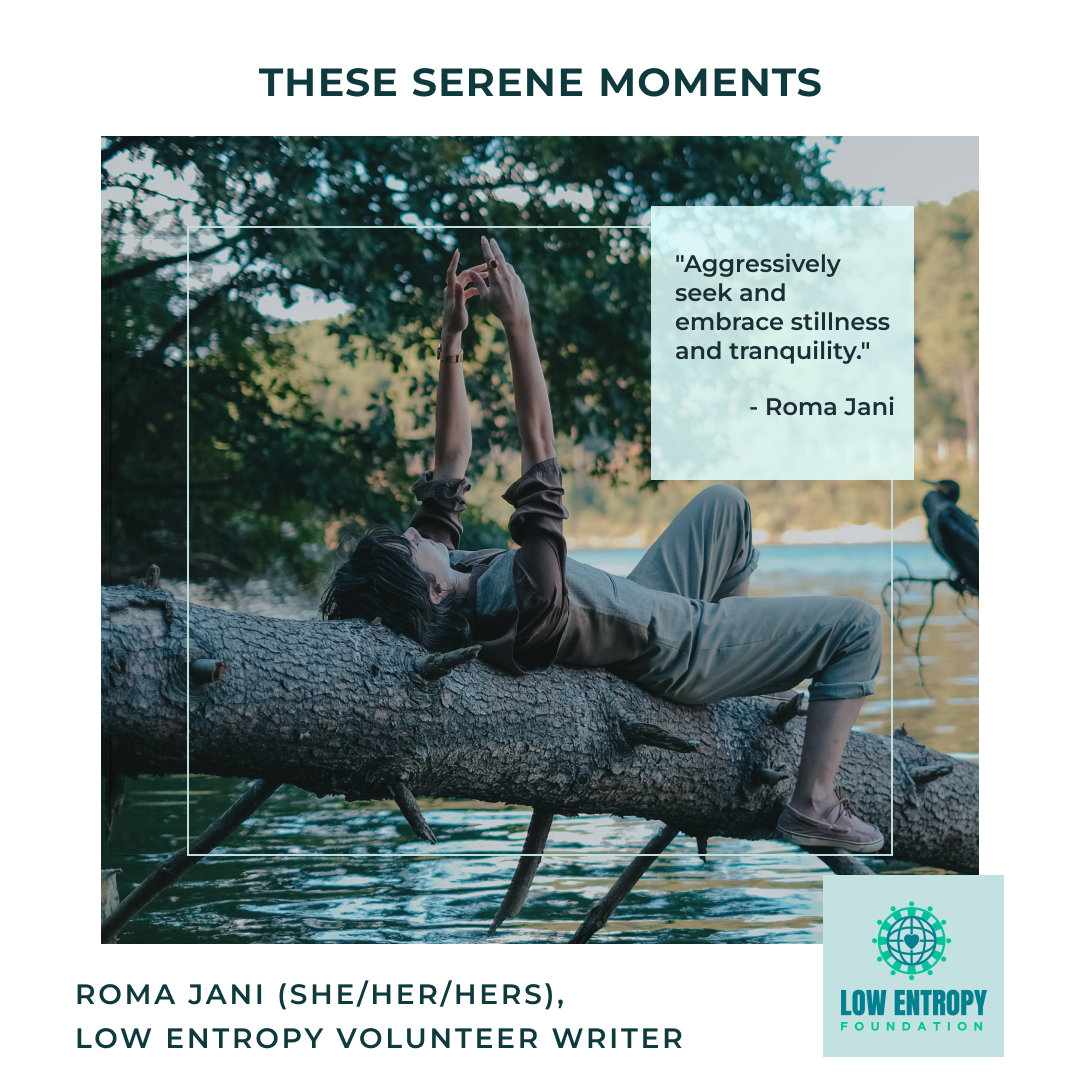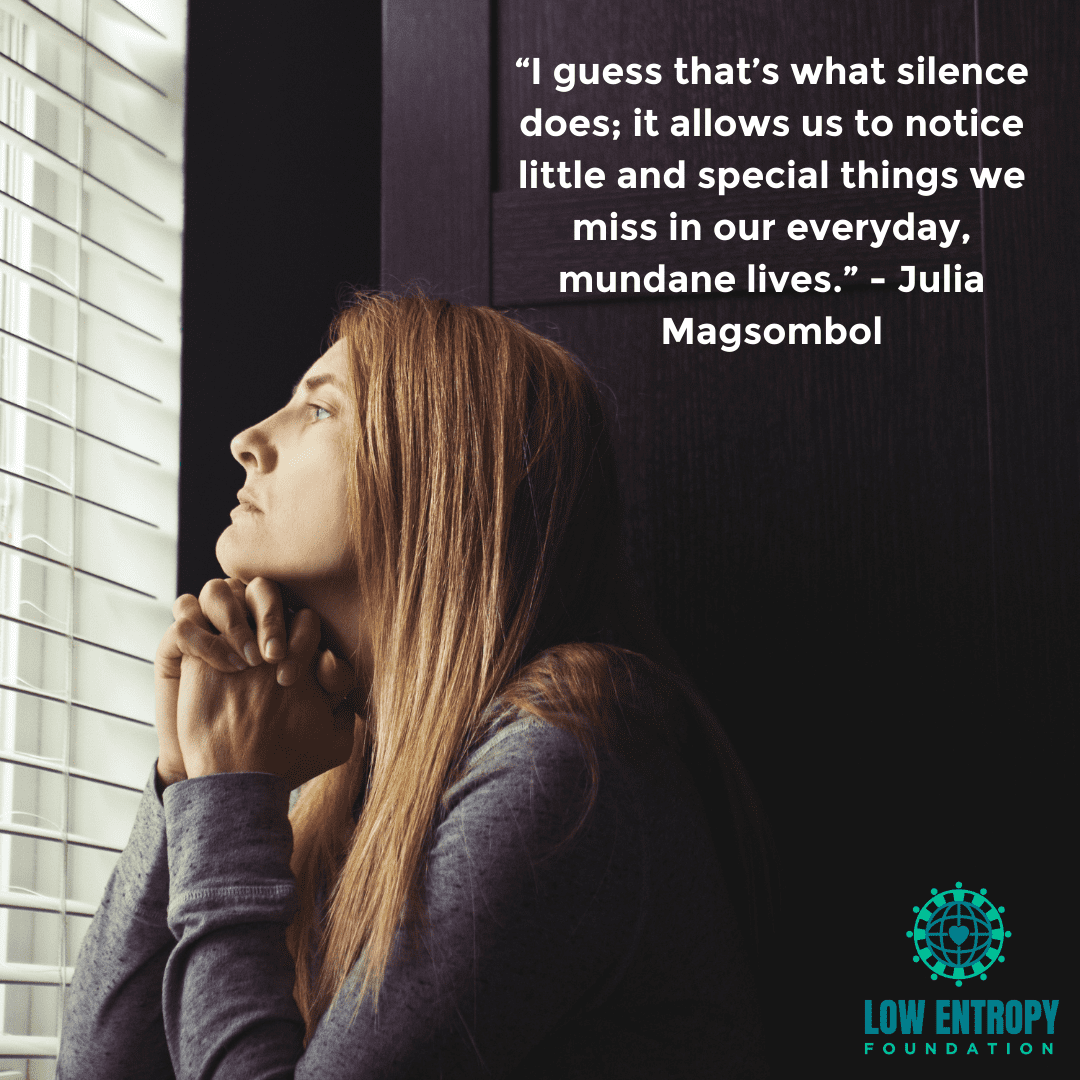The Soft Thrum
November 11, 2023

Eri Ikezawa (she/her/hers), Low Entropy Volunteer Writer
All my life, I struggled with how I viewed silence.
“How much do I value silence in my life? Does it make me feel lonely? Am I a quiet person or am I a loud person — that is, do I talk too much or too little? How do I feel when silence falls? How do I feel around people who are quieter than I am? How do I feel around people who talk more than I do?”
These were only a few of the questions I had when I deeply considered what “quiet” and “silence” meant to me.
In all candidness, when I was younger, I really struggled with the idea of “comfortable silence.” Nothing made me higher-strung and anxious than the idea of being around someone and allowing silence to fill the contours of the room, each corner and crevice shrouded by quietude, the echoes of our last spoken words eventually dissipating with the condensation from our breaths. I would frenetically search for a new conversational topic before the last one even had a chance to die, my brain scrambling listlessly through my mental directory for what to discuss next.
Along the same vein, one of my biggest insecurities — especially during my times of adolescent angst — was the fact I am a chatterbox. There was an era in my life where I wished I was naturally a quieter person, entirely romanticizing the notion of being a quiet person. I often found myself wishing that I wasn’t so impulsively conversational, always incredibly passionate and zesty with topics that interested me, leaving myself regretful and ashamed of things I’d said long after the discussion was over.
But as I have gotten older, I have grown to recognize that everything was all interconnected. Yes, I was chagrined about my proclivity for nattering away, but I was not recognizing the nuances in my conversational preferences; the reality being that I prefer not to indulge in small talk, finding myself prone to bouts of silence during occasions where the conversation didn’t delve deeper, an orator at a symposium falling silent if the volume of the theater rose to inhumane decibels. Looking back, I think perhaps I was more abashed about the times where I prattled on just to fill empty spaces instead of using my diction and, honestly, my time more wisely.
Not only that, but I have truly settled into accepting my introversion and contentment with stillness. Through investing more effort into relationships where I feel safe, appreciated and comfortable, I have retired the harried and frenzied habit of needing to consistently be talking to prevent silence from falling. Instead of viewing quiet as a thunderstorm, omnipresent and imposing, I began to view it like snowfall. With someone whom you love and treasure, it gently and soundlessly glides through the air, peaceful and calm, cushioning the atmosphere with its serenity.
I also changed my perspective on silence as a concept as well. Rather than viewing it as a clunky, awkward and unwanted entity, a flailing clown on stilts, I began to regard it with a more mature lens. I recognized that in the right context it was definitive evidence of the comfortability between individuals to feel tranquil without the exchange of words. It feels like letting my guard down in a way, shedding the burden of small talk or meaningless words and allowing the soft thrum of our genuine bond to carry the light-hearted quality of the moment between us.
Silence, I think, in part, is a marker of genuine closeness — from my experience. When it falls, but it settles seamlessly like a satin bathrobe slinking onto the lines of your body, it tacitly indicates the level of easy intimacy between two people. That is, it can be incredibly lofty and overwhelming between individuals who aren’t comfortable with each other, a hulking bull elephant in the room.
That being said, I have also grown to realize that silence has a profound way of speaking for itself. For example, the silence from people who have done wrong by you is truly a bold statement — a raucous crowd, completely muted on your television screen, holding up enormous signage of their lack of remorse. Or, on the other hand, it could be the compassionate response to someone who needs company but isn’t seeking out meaningless prattle.
And sometimes, silence can be used as a vehicle to show respect. Whether it is the shrouding veil of soundlessness at a funeral to show deference to those who have passed on or providing someone a muted environment for them to express their frustrations or grievances without interruption, there is an element of courtesy, a banner of graciousness there.
It all depends on context — and perspective.
Though this is a broad statement, I think appreciating silence is a form of maturity. As much as we are social beings, elevated and overjoyed in the presence of our loved ones, as we grow older, there truly is something so incredibly serene about being in silence — no voices or external thoughts to muddle the moments, leaving us the ability to coast leisurely into the horizon.
And to just exist.
—
My name is Eri Ikezawa and I have an extended minor in psychology and a major in linguistics. I’m still on the path to quelling questions about myself and the direction I want to head in, but in the meantime, I have always wanted to find a way to help others and contribute to a community dedicated to personal development and self-love.
GET INVOLVED
At Low Entropy, we believe changing the world starts with changing ourselves.
Founded in 2015, Low Entropy Facilitates conversations that encourage diversity and promote inclusivity.
We understand that life can be confusing at times. It can seem challenging and sometimes you may feel like no one really “gets you.” We offer an opportunity to connect with others who have the capacity to understand you.









